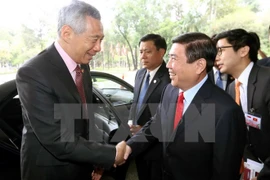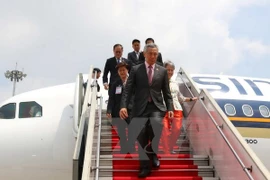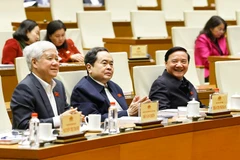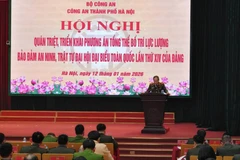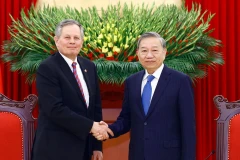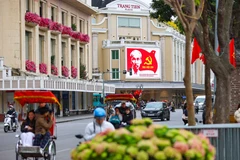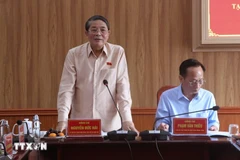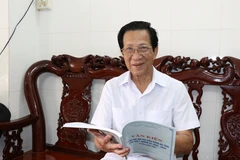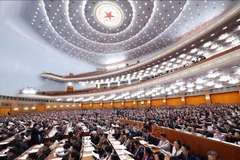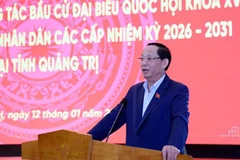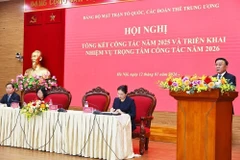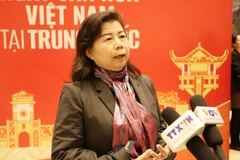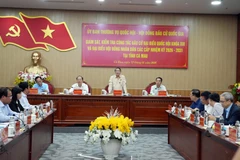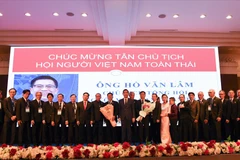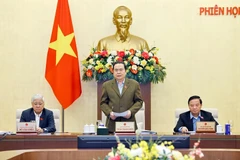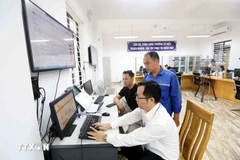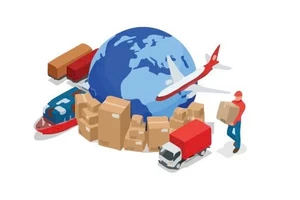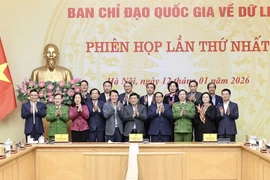According to the Vietnamese Trade Office inSingapore, two-way trade reached nearly 20 billion SGD (equivalent to 14billion USD) in 2016.
Vietnam remained the 12th biggest trade partnerof Singapore in the year, exporting over 4 billion SGD (3 billion USD) andimporting nearly 15.7 billion SGD (over 11 billion USD) worth of goods.
High-growth commodities included iron and steelproducts, grease, leathers, tobaccos, glass products, seafood and vegetables.
Despite a trade balance decline due toSingapore’s economic downturn in 2016, Singapore remained one of the biggesttrade partners of Vietnam, after China, Japan, the US, and the Republic ofKorea, and the largest trade partner in ASEAN.
Vietnam and Singapore have also activelycoordinated at regional and international forums, especially within theframework of the Association of Southeast Asian Nations (ASEAN), Asia-PacificEconomic Cooperation (APEC), and Asia-Europe Meeting (ASEM).
The two sides are sparing no effort to connectthe two countries’ economies and with others in ASEAN.
Notably, Singapore’s direct investment inVietnam has continuously increased since 1998, making it the third biggestinvestor of Vietnam among 101 countries and territories, with a totalinvestment of 39 billion USD, mainly poured into real estate, processing industry,manufacturing, and construction.
The most typical project is theVietnam-Singapore Industrial Park (VSIP).
Industry-trade ministerial-level meetings areconducted periodically (eight months) and rotationally in each country toreview the implementation of the Vietnam – Singapore Connectivity FrameworkAgreement and map out cooperation orientations for the next phase.
So far, the two sides have convened 12 meetingswith the latest held in Singapore in September 2016.
Deputy Director of the Export and ImportDepartment under the Ministry of Industry and Trade Tran Thanh Hai said Vietnamand Singapore recorded an annual average growth of 12 percent.
Singapore imports up to 90 percent of food andfoodstuff from foreign markets and this will be a brilliant opportunity forVietnam to boost the exports of such staples as rice, coffee, tea, vegetablesand fruits, and fine-art handicraft products, he added.
Vice versa, Singaporean businesses have strengthin processing, packaging, and increasing added value for products, and broadmarket relationship. As Singapore is considered a global transit destination, Vietnamesefirms should, therefore, seek to make inroads into other ASEAN markets viaSingapore, he suggested.
To tighten the two countries’ relations,Singapore’s Prime Minister Lee Hsien Loong and his spouse are paying anofficial visit to Vietnam from March 21-24, at the invitation of Prime MinisterNguyen Xuan Phuc.
The two sides are expected to discuss strategicorientations and specific measures to further deepen the bilateral strategicpartnership in the coming time and keep up with the current rapid developmentsin the fourth industrial revolution.
They will also continue supporting each other atmultilateral forums of ASEAN, APEC, ASEM, and the United Nations forsustainable development and prosperity.
At a meeting with PM Lee Hsien Loong in Hanoi onMay 20, 2016, the Vietnamese PM affirmed that his country always attaches greatimportance to bolstering all-faceted relations with Singapore and hopedSingapore will create the best conditions for Vietnamese firms to export farmproduce, seafood, and garment-textile to the market to help balance the trade.
Experts said Vietnam and Singapore should takeadvantage of their strengths to promote strategic partnership and join theglobal supply chain. For example, Singapore has strength in capital, research,technology, and markets, while Vietnam boasts advantages in natural resources,labour and markets.
Additionally, it is necessary to help businessesmake investments in the respective markets via promoting trade activities andnew cooperation methods, especially the public-private partnership (PPP) form.
Experts also recommended drawing investment frommultinational groups headquartered in Singapore in the fields of healthcare,education, infrastructure development, processing industry, high technology,and tourism.
Key projects should be defined, especially atindustrial parks, urban and logistics areas, they said, adding that the twocountries need to create a periodical information exchange mechanism as well asprovide information on their socio-economic development situation, policies andlaws as a source of reference data for their businesses when seeking marketentry. -VNA


